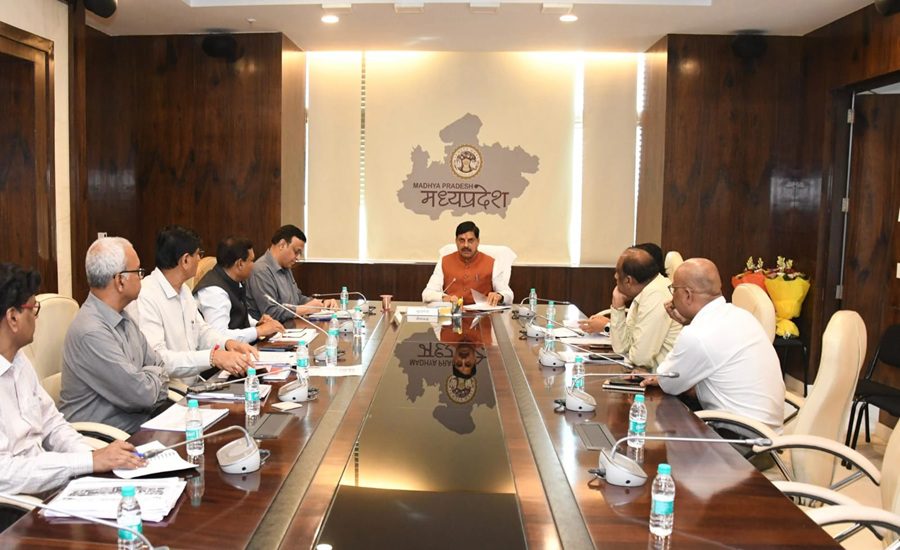Bhopal: Chief Minister Dr. Mohan Yadav has reaffirmed the state government’s unwavering commitment to not only providing tap water to every rural household in Madhya Pradesh but also ensuring its long-term sustainability and quality. Stressing that access to clean drinking water is a basic right, the Chief Minister said that the new operational policy must prioritize community involvement, sustainability, and permanence.
Dr. Yadav made these remarks during a high-level meeting at Samatva Bhavan, his official residence, where the draft of the Operation, Maintenance, and Management Policy for Rural Tap Water Schemes was discussed.
Policy for Long-Term Impact, Not Just Construction
“We must not limit our vision to the mere construction of tap water schemes,” said CM Yadav. “Our real success will be when every household continues to get clean, quality water for years to come.”
He emphasized the need to establish robust operational and maintenance systems for both single-village and group water supply schemes. These should function at full capacity and withstand the test of time.
Public Participation Key to Success
Dr. Yadav highlighted the importance of community ownership at the grassroots level. Gram Panchayats will continue to operate the schemes, while the Public Health Engineering Department (PHED) will provide technical and maintenance support through contracted agencies.
This hybrid governance model, he said, will ensure both local accountability and professional maintenance services – a combination that can create a reliable and efficient rural water infrastructure.
Jal Jeevan Mission Progress in Madhya Pradesh
The Jal Jeevan Mission, a flagship initiative launched under the leadership of Prime Minister Narendra Modi, has catalyzed a transformation in rural water access across India. Madhya Pradesh, in particular, has made commendable progress:
- In August 2019, only 12.11% of rural households (13.53 lakh families) had tap water access.
- As of now, 70.41% (78.64 lakh families) have been connected.
- The target is to cover 1.11 crore families by March 2027.
The state has completed 52 of 147 Group Tap Water Schemes, currently benefiting 4,285 villages. The remaining 95 schemes are under implementation.
Policy Rollout for Three Years
The proposed Rural Nal Jal Yojana Operation, Maintenance and Management Policy, developed by PHED in consultation with the Panchayat and Rural Development Department, will be implemented for three years after formal approval.
PHED Principal Secretary P. Narhari, an IAS officer of the 2001 batch belonging to the Madhya Pradesh cadre, presented a detailed roadmap and operational framework, stating that the department’s role will focus on supporting Panchayats and ensuring technical maintenance, while villagers themselves manage daily operations.
Technocratic and Political Support
The meeting was attended by key ministers and senior bureaucrats including:
- Prahlad Singh Patel, Panchayati Raj and Rural Development Minister
- Sampatiya Uike, Minister for Public Health Engineering
- Anurag Jain, Chief Secretary
- Other senior officials from PHED and the Chief Minister’s Office




























